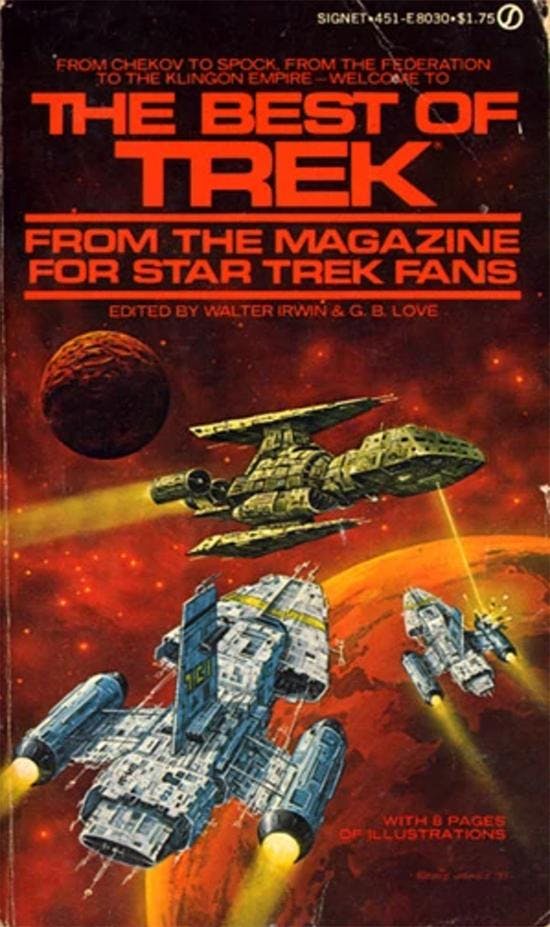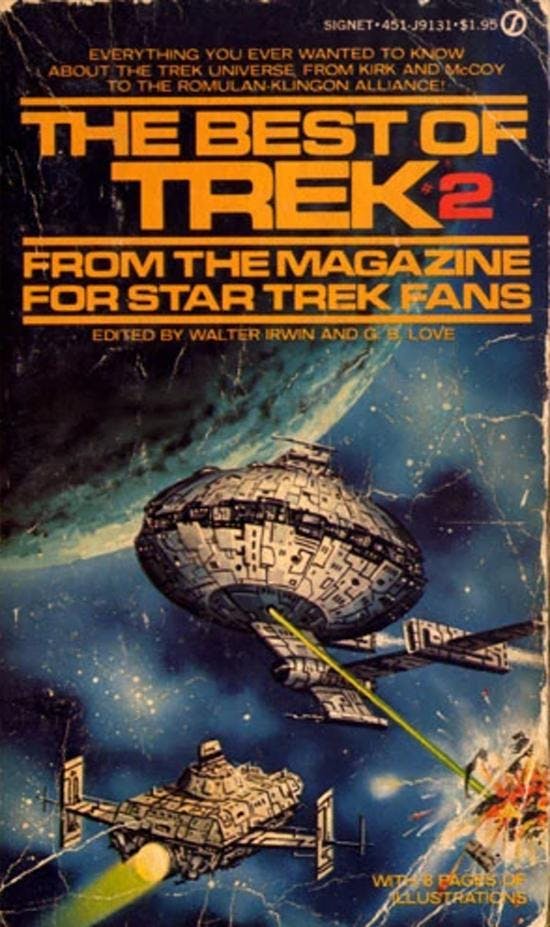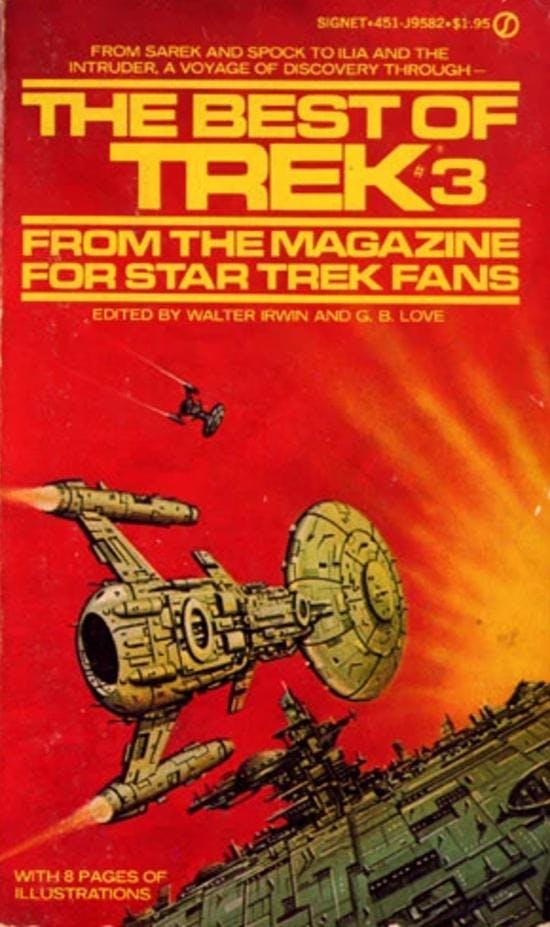Published Mar 30, 2019
Remembering the 'The Best of Trek' Fanzine
The meticulous collections of articles and essays are yet another reminder that 'Star Trek' would be nothing without its fans.

StarTrek.com
Before the internet and social media – even before Dan Madsen’s historic and important Communicator magazine and official fan club– Star Trek fans used fanzines, unofficial, fan-produced magazines, to communicate ideas and stories. One of the most influential of these fan magazines was Trek, published for two decades beginning with its first 1974 issue. Known for its quality articles and fan submissions, Trek was a place for debate, discussion, and exploration.

The quality of the writing was so good that beginning in 1978, the best articles from the fanzine were collected in book appropriately named, The Best ofTrek. The 18 book series (published first by Signet and then ROC Books) remains a significant resource for charting the fan experiences of the 1970s to the 1990s. Additional to the regular books, there were four Best of The Best ofTrek compilations.
The books were edited by Walter Irwin and Gordon “GB” Love, both sadly lost to us since. The pair were pioneers in the modern era of science-fiction fandom. In addition to creating the Science Fiction and Comics Association, for example, Love helped usher in the era of Star Trek conventions. Much of the credit for making Trek such a quality publication goes to Irwin and Love’s dedication, love, professionalism, and commitment to providing fans a voice in the science-fiction community.
Many of the book’s contributions dealt with alien cultures, especially the Vulcans. Delving into Vulcan language, familial relationships, politics, and history, these writings are certainly not cannon, yet they provide a clear picture of the affinity and creativity of fans for Mr. Spock and his heritage. More real-world experiences like Star Trek convention reports, which are fascinating to compare to today’s cons, contributions about how educators were beginning to use Star Trek in the classroom, and also making-of articles about everything from special effects to cinematography, also were a consideration. There were, of course, parodies of the TV shows and films included to add to the fun.

Of special note was the “Trek Round Table,” where fans would write in, discussing and debating everything from story points to the newest films – a precursor to internet message boards and Facebook. The “Star Trek Mysteries Solved” series was also fascinating, with fans submitting questions about inconsistencies between or within episodes, and these mysteries being solved and explained by Leslie Thompson, a frequent contributor. The published fan polls continue to give researchers today an idea of what fan favorites and feelings were during the past.
The Best of Trek books were never Pollyanna-ish. There were thought-provoking criticisms, sometimes proffered by the fan writers, that became especially important as Star Trek began to return during the late 1970s and early 1980s as films. The commentaries about the introduction of The Next Generation,and subsequent sequel shows are also worth reading for their historic value in detail. What was great about The Best of Trek was that even if a reader disagreed with the thesis of the piece they were reading, the work was still a worthwhile effort, with a reasoned argument nonetheless.
By reproducing the best articles in book form, Irwin and Love were able to bring these quality writings to a larger audience than the niche fanzine market. The role the books played in helping keep Star Trek in the public eye cannot be exaggerated. The articles that were reprinted in The Best of Trek series are a delight to read again, and are often available at online and brick-and-mortar used-book stores for today’s fans who wish to check them out.

Maria Jose and John Tenuto are both sociology professors at the College of Lake County in Grayslake, Illinois, specializing in popular culture and subculture studies. The Tenutos have conducted extensive research on the history of Star Trek, and have presented at venues such as Creation Conventions and the St. Louis Science Center. They have written for the official Star Trek Magazine and their extensive collection of Star Trek items has been featured in SFX Magazine. Their theory about the “20-Year Nostalgia Cycle” and research on Star Trek fans has been featured on WGN News, BBC Radio, and in the documentary The Force Among Us. They recently researched all known paperwork from the making of the classic episode "Space Seed" and are excited to be sharing some previously unreported information about Khan's first adventure with fellow fans. Contact the Tenutos at jtenuto@clcillinois.edu or mjtenuto@clcillinois.edu.
